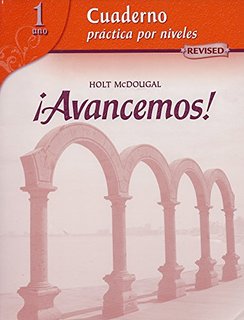
All Solutions
Page 299: Gramatica B
**Tip:** Remember that **the verb matches the subject in person and number.** This is how you will know which form of the verb to put.
Look at the table below to see the endings for these verbs:
|Singular |Plural |
|–|–|
|Yo **-í** |Nosotros **-imos**|
|Tú **-iste**|Ustedes **-ieron** (Mexico)|
|Él/Ella **-ió**|Ellos/Ellas **-ieron**|
– Inés _____ for an hour.
Inés is third-person singular, so we will rise that form of the verb *corr**er** (to run)*. As a result, we get ***”corrió.”***
– You ______ early.
You is second-person singular, so we will use the appropriate form of the verb *volv**er** (to return)*. As a result, we get ***”volviste.”***
– Inés and I ______ our jackets.
The subject is first-person plural (we), so we will use the appropriate form of the verb *perd**er** (to lose)*. As a result, we get ***”perdimos.”***
– You _______ his lunch.
Here, you is second-person plural, so we need the second-person plural of the verb *compart**ir** (to share)*. The end result is ***”compartieron.”***
– I _____ at 10 o’clock.
The subject is first-person singular (I), therefore, we will use the first-person singular form of the verb *sal**ir** (to go out)*, and get **”salí.”**
1. B
2. D
3. A
4. A
5. D
**Tip:** Remember that **the verb matches the subject in person and number.** This is how you will know which form of the verb to put.
Look at the table below to see the endings for these verbs:
|Singular |Plural |
|–|–|
|Yo **-í** |Nosotros **-imos**|
|Tú **-iste**|Ustedes **-ieron** (Mexico)|
|Él/Ella **-ió**|Ellos/Ellas **-ieron**|
The subject is first-person singular (I). When we conjugate the verb *escribir* to get the first-person singular form in the preterite, we get **”escribí.”**
*Yo escribí…*
The subject is third-person plural (they). When we conjugate the verb *salir* to get the third-person plural form in the preterite, we get **”salieron.”**
*Lorena y Armando salieron…*
You is a formal second-person singular. However, in this case, we conjugate the verb *barrer* as we would a third-person singular, so the ending would be *-ió*. The end result is **”barrió.”**
*Señora Barros, ¿usted barrió…?*
Here, you is second-person singular and we conjugate it as such. As a result, we get **”corriste.”**
*Tú corriste…*
The subject is second-person plural (you). When we conjugate the verb *recibir* to get the second-person plural form in the preterite, we get **”recibieron.”**
*¿Lorena y tú recibieron…?*
1. escribí
2. salieron
3. barrió
4. corriste
5. recibieron
**Tip:** Remember that **the verb matches the subject in person and number.** This is how you will know which form of the verb to put.
Look at the table below to see the endings for these verbs:
|Singular |Plural |
|–|–|
|Yo **-í** |Nosotros **-imos**|
|Tú **-iste**|Ustedes **-ieron** (Mexico)|
|Él/Ella **-ió**|Ellos/Ellas **-ieron**|
*(My parents went out to a good restaurant.)*
The subject is third-person plural, so we conjugated the verb *sal**ir** (to go out)* and got *”sal**ieron**.”*
*(I returned to New York.)*
The subject is first-person singular (I), so we used the first-person singular form of the verb *volv**er** (to return)* and got *”volv**í**.”*
*(My mother sold my old bicycle.)*
The subject is third-person singular, so we conjugated the verb *vend**er** (to sell)* and got *”vend**ió**.”*

